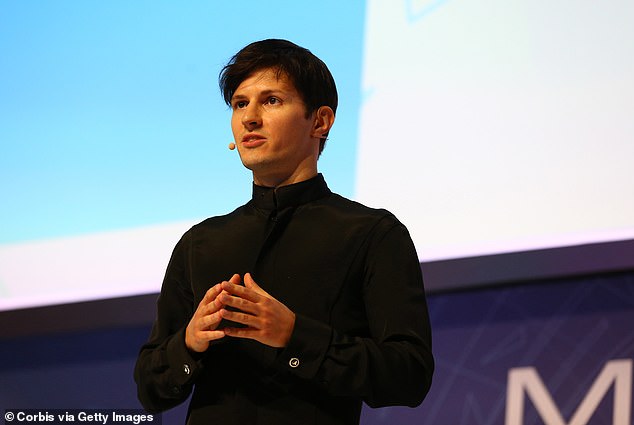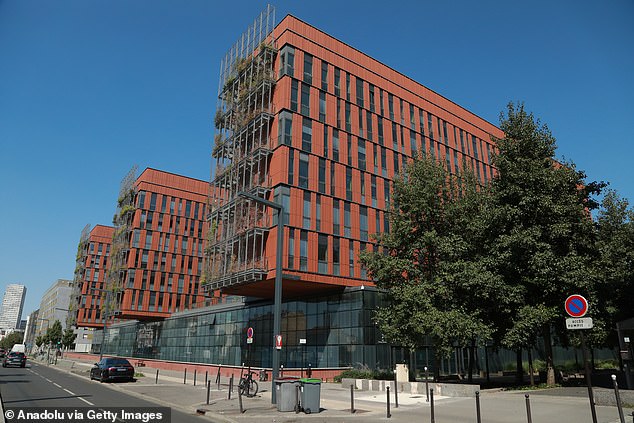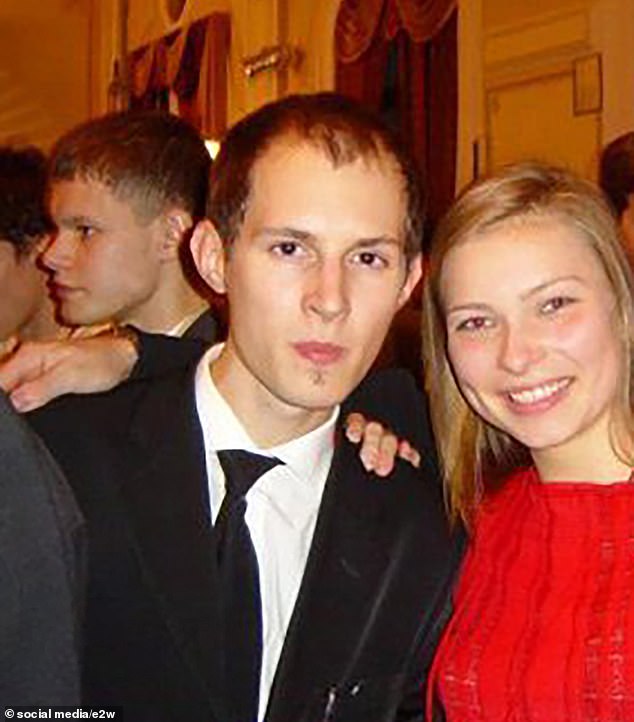Telegram billionaire Pavel Durov is charged with allowing criminal activity on his messaging app and barred from leaving France
Telegram magnate Pavel Durov has been charged with allowing criminal activity on his messaging app and banned from leaving France pending further investigation.
The 39-year-old billionaire was arrested on Saturday at Le Bourget airport outside Paris as part of a large-scale judicial investigation opened last month into 12 alleged offences.
He was released earlier today after four days of questioning.
The investigating judges filed the preliminary charges on Wednesday evening and sentenced him to pay a bail of 5 million euros and to report to the police station twice a week.
Russian-born Durov, who holds French nationality, is accused of using his platform to distribute child abuse material and drug trafficking, and of refusing to share information or documents with investigators when required by law.
Telegram magnate Pavel Durov has been charged with allowing alleged criminal activity on his messaging app and banned from leaving France

Durov was arrested on Saturday at Le Bourget airport outside Paris as part of a judicial investigation opened last month into 12 alleged criminal offences
Durov’s arrest in France sparked outrage in Russia, with some government officials calling the arrest politically motivated and evidence of the West’s double standards when it comes to freedom of expression.
The protest raised eyebrows among Kremlin critics, as Russian authorities themselves tried and failed to block the Telegram app in 2018. The ban was lifted in 2020.
In Iran, where Telegram is widely used despite being officially banned after years of protests against the country’s Shiite theocracy, Durov’s arrest in France prompted comments from the Islamic Republic’s supreme leader.
Ayatollah Ali Khamenei praised France for being “tough” on people who violate “their governance” on the internet.
French President Emmanuel Macron said on Monday that Durov’s arrest was not a political move but part of an independent investigation.
Macron wrote on X that his country is “strongly committed” to freedom of expression, but that “freedoms are upheld within a legal framework, both on social media and in real life, to protect citizens and respect their fundamental rights.”
Telegram said in a statement on its platform following Durov’s arrest that it complies with EU law and that its moderation “falls within industry standards and is continuously improving.”

The arrest of Durov (pictured) in France has sparked outrage in Russia, with some government officials calling it politically motivated.

A general view of the Office National Antifraude (ONAF) building, or National Anti-Fraud Bureau, in Ivry-sur-Seine, south of Paris, where Pavel Durov was held
“It is absurd to claim that a platform or its owner is responsible for the misuse of that platform,” the Telegram post read.
“Almost a billion users worldwide use Telegram as a means of communication and as a source of essential information. We are waiting for a quick resolution of this situation. Telegram is with all of you.”
In addition to Russia and France, Durov also holds the nationality of the United Arab Emirates and the Caribbean island nation of St. Kitts and Nevis.
The UAE Foreign Ministry said on Tuesday it was “closely following” the case and had asked France to “urgently provide all necessary consular services” to Durov.
Kremlin spokesman Dmitry Peskov said he hopes Durov will be provided with “all necessary opportunities for his legal defense,” adding that Moscow “stands ready to provide all necessary assistance and support” to the Telegram CEO as a Russian citizen.
“But the situation is complicated by the fact that he is also a French citizen,” Peskov said.
Telegram was founded in 2013 by Durov and his brother, after he himself came under pressure from Russian authorities.
Since then, it has amassed over 950 million users, making it one of the largest social media platforms in the world after Facebook, YouTube, WhatsApp, Instagram, TikTok and WeChat.
In 2013, he sold his stake in VKontakte, a popular Russian social networking site he launched in 2006.

A very different-looking Durov in his twenties. He founded VK, often called the ‘Facebook of Russia’, when he left university at the age of 21.
The company came under pressure when the Russian government took measures following the massive pro-democracy protests that rocked Moscow in late 2011 and 2012.
Durov said authorities demanded that the site shut down online communities of Russian opposition activists. They later demanded that the site hand over personal data of users who participated in the 2013-2014 uprising in Ukraine that ultimately led to the ouster of a pro-Kremlin president.
Durov said in a recent interview that he had rejected these demands and left the country.
The protests prompted Russian authorities to clamp down on the digital world. Telegram and its pro-privacy rhetoric offered Russians a convenient way to communicate and share news.
Telegram is still a popular news source in Ukraine, too. Both media and officials use it to share information about the war and to issue warnings about missiles and airstrikes.
Western governments have often criticized Telegram for its lack of content moderation, which experts say could allow the messaging app to be used for money laundering, drug trafficking and sharing material related to the sexual exploitation of minors.
In 2022, Germany fined Telegram operators $5 million for failing to establish a legal way to report illegal content or name an entity in Germany to receive official communications, both of which are required under German laws regulating major online platforms.
